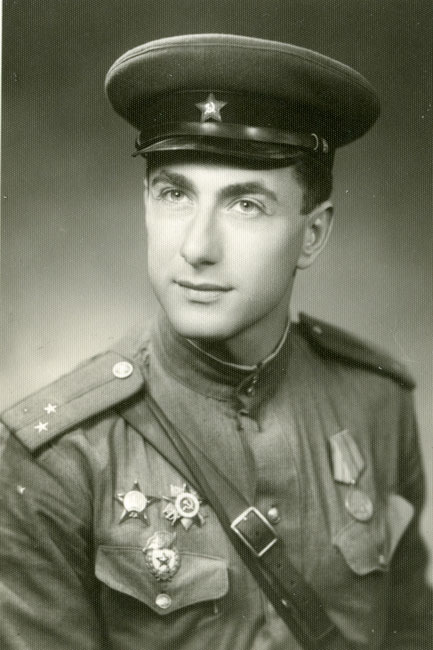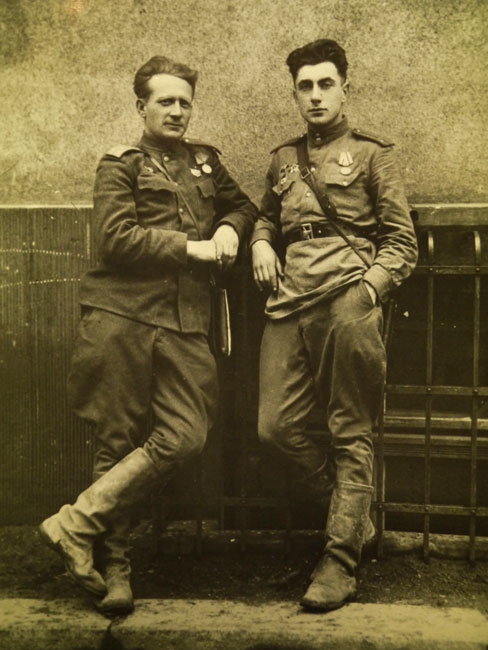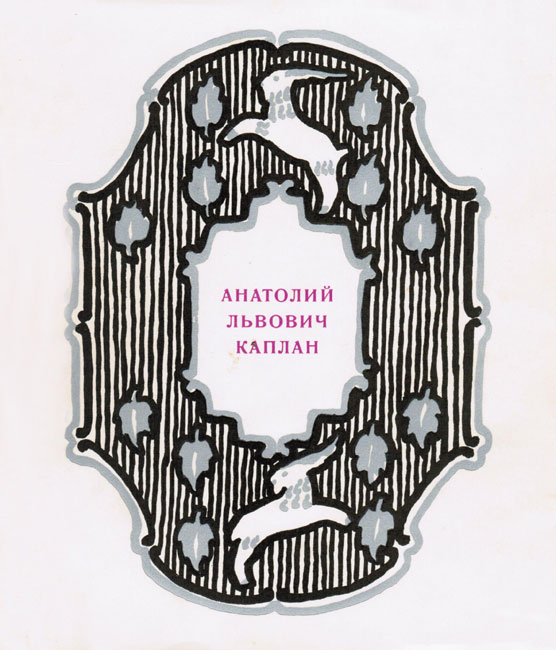Boris Suris was born in 1923 in Odessa. He was the youngest child in the family of the well-known local lawyer David Suris. After completing 10-year school, Boris entered the Odessa art school but, in September 1940, began to study architecture at the Odessa Construction Institute. Since he had a good command of German, as well as French, right after being drafted into the Red Army on July 22, 1941, Boris was sent to a school for military translators. After completing the course, in May 1942 as a technical-quartermaster he was sent to the front and in September of that year began translating for the headquarters, of an infantry division fighting on the Don Front near Stalingrad. He was seriously wounded in May 1943 but, after four months in hospital, he returned to the front.
From December 1943 to January 1944, in addition to serving as a translator, he was also head of an intelligence unit. At that time he organized and headed the work of an intelligence group that was sent into enemy territory. He personally took part in capturing "tongues," who under interrogation provided the Soviets with valuable information about the enemy's forces.
For his work in translating and intelligence gathering, Suris was awarded the For Combat Merit Medal and the Orders of the Patriotic War, 2nd class, and of the Red Star. He learned of the end of the war in May 1945 when he was in Czechoslovakia.
After being demobilized in 1946, Suris entered the Leningrad Academy of Arts in the faculty of art history. After graduating, he worked as an editor in the Iskusstvo (Art) Publishing House in Leningrad. He began a well-known specialist on the Leningrad school of graphic artists. Among his works was his 1972 (rare for its time) book on the Jewish artist Tanhum (Anatolii) Kaplan, which dealt in detail with the artist's illustrations for works by Sholem Aleichem, and devoted considerable attention to the depiction of life in theshtetl.
Boris Suris died in Leningrad in 1991.
Boris Suris' Diary Entries
During the four years of the war Boris Suris kept a journal in which he regularly jotted down his thoughts and observations about the condition of the Red Army, the situation at the front, the relations between the soldiers and their officers, and the attitude of Soviet troops to the local population in Poland and Czechoslovakia. Suris realized that his parents had not succeeded in leaving Odessa and his concern about their fate is revealed a number of times in his journal. He did not know that his mother and father had been hiding with people they knew but had then been arrested and were held in an Odessian jail, where Boris' nanny, a Ukrainian woman named Klava, brought them food and other necessities. However, later his parents were taken from the jail and, apparently, killed. Although not expressed explicitly, Boris's worry about his parents is conveyed in his journal entry for January 4, 1944:
"…A partisan just six months ago came from Odessa…. During the first days after the capture of Odessa approximately 48,000 Jews were killed; they were hanged. Two rows of gallows extended all along Pushkin Street to the train station and along Komsomolskaia Street."
From: Boris Suris, Frontovoi dnevnik: dnevnik, rasskazy (Frontline journal: Journal, Stories), Moscow, 2010, p. 166.
In the Polish town of Andrychόw not far from Auschwitz-Birkenau on February 11, 1945 Suris noted rumors that were circulating among the Polish population about that death camp (the entry was made in his journal two weeks after the liberation of the camp by the Red Army on January 27, 1945). Some of his information was incorrect but reflected ideas then current among Soviet soldiers and officers about the Nazi atrocities, including the mass murder of the Jews.
Suris wrote:
"What has been written in our newspapers about Oświęcim (Auschwitz) is not half of what Poles told me. I can't in any way understand how people can do such things or indeed what kind of people these are. The sick and terrible fantasy of some mad writer or other could never imagine such things. I was told about a wire fence (with a skull and crossbones on ever post) which surrounded the area of the camp for 20 kilometers. No one dared to cross this wire and trains traveled around the camp, for which purpose special branch lines were constructed, but even then the stench of the ovens in which they [the Germans] burned people reached as far as these 20 kilometers. First they stripped them and killed them naked, then they burned them all. The ashes from these ovens were taken to Germany – for technical uses, fertilizer was made from the bones. They even made soap out of people – they even called it 'soap from Jews.'…. This was a highly developed, well organized, and technological based undertaking."
From: Boris Suris, Frontovoi dnevnik: dnevnik, rasskazy (Frontline journal: Journal, Stories), Moscow, 2010, p. 166.









